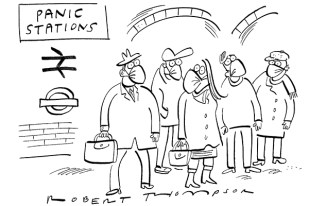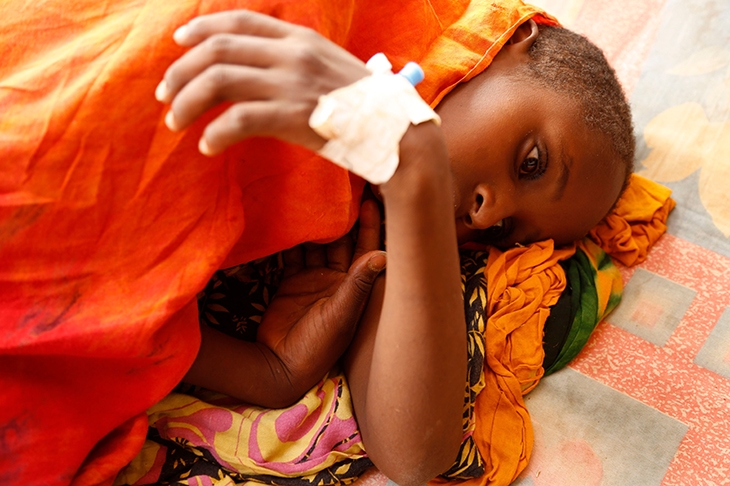Africa

‘Ah, Africa,’ the French scientist sighed contentedly. This was 1995 and all around us was an Ebola epidemic ravaging Kikwit, a village in what they now call the Democratic Republic of Congo. ‘No lawyers to sue us!’ I had just asked him why doctors in the local hospital ward had shown me Ebola victims, lying in beds next to patients suffering milder diseases. In the Kikwit outbreak, the hemorrhagic fever killed eight out of ten people infected — 245 in all. People became sick after kissing and hugging the bodies of their loved ones at their funerals. Local doctors told me that dysentery routinely claimed more Kikwit children’s lives, yet the foreigners flying in and out of the jungle strip on US military transports were gripped only by Ebola — and whether the virus could perhaps go airborne. They were directing operations in the hospital and in their laboratory I saw a line of monkeys strapped into chairs, wearing face masks attached to ventilator tubes.
In Somalia, I witnessed a measles epidemic. In the town of Baidoa, a famine was killing 400 people a day. After dark the children suffering vitamin A deficiency would stumble around blindly calling for their mothers. A chorus of hacking coughs heralded dawn, when skeletal figures on spindly legs tottered in circles holding the bodies of their kids until they flopped down in the heat. Reporters like me were trying to get a sense of numbers and so each morning we’d get on a truck that went around collecting corpses. Teams of women tenderly washed the bodies and instead of shrouds they wrapped them in their infected, dirty blankets. What I respected about the people in Baidoa was that every famine victim who died was an individual and I never saw them tossed into mass graves.
One morning I went out and saw five dead by the roadside. By the next morning there were hundreds
And then there was the aftermath of Rwanda’s genocide, when nearly a million Hutus fled the country after the Tutsis had been butchered. They camped on a volcanic plain in Zaire and the place became caked with shit that ran down into the dams and lakes where the refugees drew their water, sometimes with bodies floating nearby. Very soon cholera broke out and people began dying. One morning I went out and saw five of the dead on the roadside. By evening there were dozens. Next morning there were hundreds. We pitched our tents on the edge of an airfield where the Foreign Legion was flying in medical supplies such as IV fluids and food. I once opened up my tent to find that a man had died a few feet away from where I had slept. Refugees began succumbing faster than they could be buried, in pits the size of swimming pools. The volcanic rock was so hard to penetrate the soldiers began using dynamite to blast holes. When this didn’t work they had to bulldoze the corpses into pyramids and try to cover them with earth, since nobody would burn them, believing this to be against local tradition. In around a month in those camps, cholera claimed 50,000 lives.
Epidemics have been very common across Africa over this past generation but you have probably heard about very few of them. Some people are now wondering why Africa has stayed out of the news about coronavirus. Around a dozen African countries have reported cases but the numbers are still very low. Are leaders hiding the truth? Are they unaware of infections that might have been imported since January by workers from the Far East? Does Africa’s hot weather kill the virus? Whatever the explanation, it seems clear this pandemic will soon take hold across the world’s poorest continent, perhaps reaching many of the 1.2 billion people here. Yet the sad fact that elderly people seem to be the worst affected — whereas the young appear more resilient — might be one cause for hope, since three quarters of Africans are below the age of 35. In many African countries the median age is below 20 — and the life expectancy only extends to 60. As a 54-year-old Caucasian in Kenya with high blood pressure, I am apparently toast, in case you think I am gloating.
But having witnessed a number of epidemics in Africa over the past few decades, I know that in the midst of really frightening times I have seen level heads and human compassion and it’s these that stay in the memory rather than panic and hysteria. The other thing, of course, is that human ingenuity usually brings an end to the disease pretty quickly. And if that fails, it burns itself out in due course and life goes on.







Comments